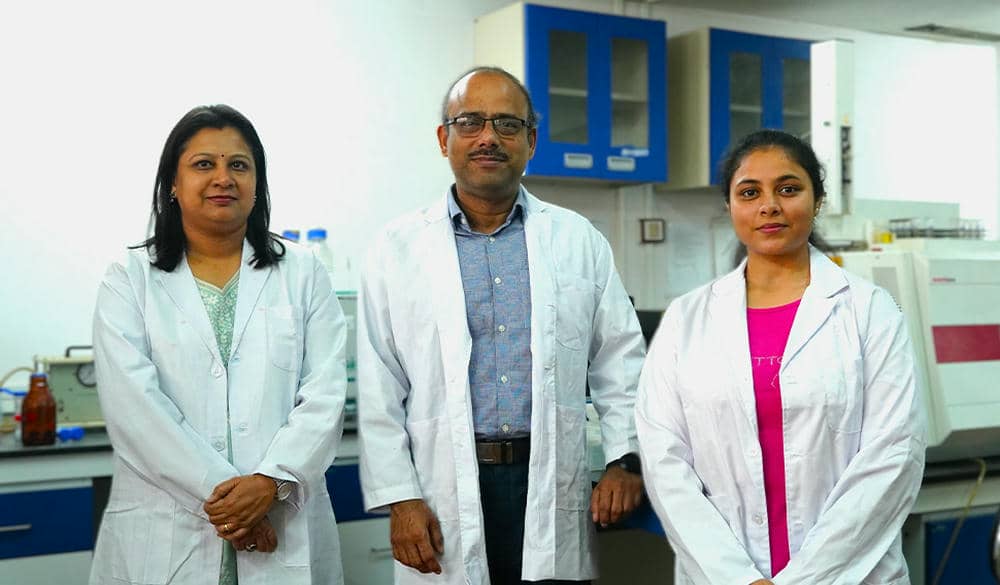IIT Guwahati scientists turn fruit waste into sustainable solution for industrial wastewater treatment

Researchers at the Indian Institute of Technology Guwahati (IIT-G) have developed an innovative, cost-effective method to remove toxic pollutants from industrial wastewater using biochar derived from fruit waste.
The team, led by Dr. Gopal Das, Professor in the Department of Chemistry, has demonstrated that biochar made from discarded pineapple crowns and mosambi (sweet lime) fibres can effectively absorb nitroaromatic compounds—hazardous chemicals commonly found in the industrial wastewater from sectors such as dyes, pharmaceuticals, pesticides, and cosmetics.
The study, published in the journal Chemical Engineering Science, was co-authored by Prof. Das along with research scholar Neha Gautam and Dr. Deepmoni Deka, Senior Technical Officer at the Centre for the Environment, IIT Guwahati.
Nitroaromatic compounds pose a severe threat to human health and ecosystems due to their persistence in water bodies, leading to bioaccumulation and toxicity. Exposure to these compounds has been linked to cancer, genetic mutations, and other harmful effects.
While existing wastewater treatment methods—such as catalytic degradation, electrochemical processes, and biological treatments—require costly materials, complex equipment, or produce harmful by-products, IIT Guwahati’s research offers a sustainable alternative.
The researchers produced biochar using a process called pyrolysis, which decomposes organic waste at high temperatures in an oxygen-free environment. Two types of biochar were developed ACBC (Ananas Comosus Biochar) from pineapple crowns and MFBC (Citrus Limetta Biochar) from mosambi fibers.
Both biochars were tested for their ability to remove 4-nitrophenol, a common industrial pollutant. ACBC achieved a 99% removal efficiency, while MFBC removed 97% of the contaminant. The process was remarkably fast, reaching equilibrium within just five minutes—a significant improvement over conventional methods.
The study found that both ACBC and MFBC biochars maintained their high efficiency over multiple cycles, making them reusable and cost-effective for long-term wastewater treatment. “This work showcases how waste materials can be transformed into valuable resources for environmental protection. By repurposing fruit waste, we are addressing both industrial pollution and waste management challenges,” said Prof. Das.
Beyond industrial wastewater treatment, biochar-based filtration systems could be used in rural water purification setups to remove harmful organic contaminants from drinking water. The technology could also support environmental remediation efforts, restoring polluted water bodies and improving soil quality.
The next phase of the research involves lab-scale testing, followed by field trials and market validation. The team is seeking collaborations with industry stakeholders to commercialize the technology and bring it to large-scale application.

Leave a Reply